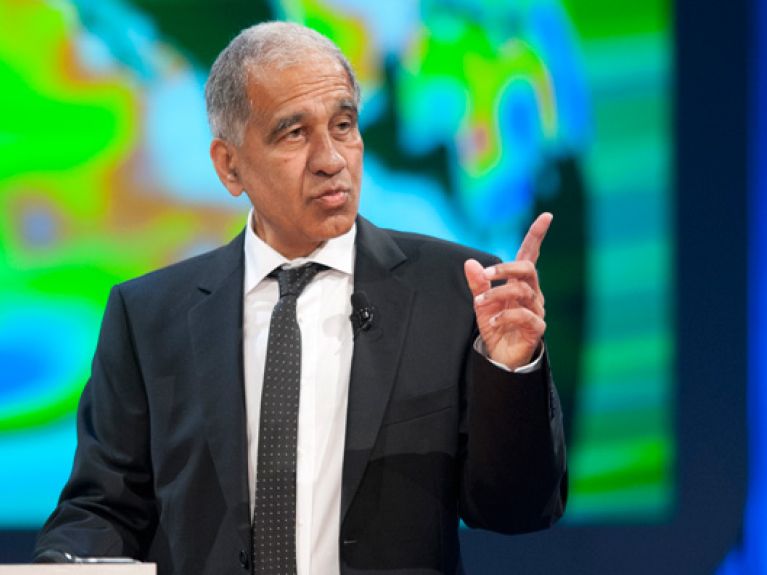“An enormous experiment with the Earth”
Professor Mojib Latif is one of Germany’s best known and most renowned climate researchers. Three questions about the UN Climate Conference in Paris.

Professor Latif, what would be your preferred outcome of the UN climate summit?
Global greenhouse gas emissions must reach their maximum level by about 2020 and fall to practically zero by roughly 2070. Then we would still be able to avoid “dangerous” climate change, as agreed in the 1992 Rio Framework Convention on Climate Change. I fear Paris will not achieve that.
What will happen if this target is not met? Are there alternatives like removing CO2 from the atmosphere?
The consequences would be incalculable in relation to climate, ecosystems, the world economy and the security architecture of the Earth. Technological solutions do not yet exist. The best solution is to tackle the root of the problem, which means emitting no more greenhouse gases. These solutions already exist and can be developed further. In my opinion, we should take this certain route.
Which climatic changes will we have to get used to?
We will be unable to prevent further warming in the coming decades because of the inertia in the climate system. The sea level will continue to rise for many decades, and extreme weather events, such as strong precipitation or periods of drought, will probably increase. We are conducting an enormous experiment with the Earth. Perhaps we have already exceeded several critical values – for example, when it comes to the Greenland ice sheet. Possibly we will no longer be able to prevent its complete melting, which would result in an average worldwide rise in sea level of seven metres.
United Nations Climate Change Conference in Paris from 30 November to 11 December 2015

